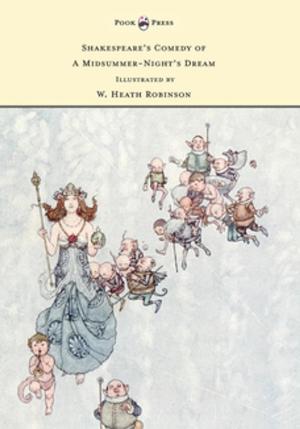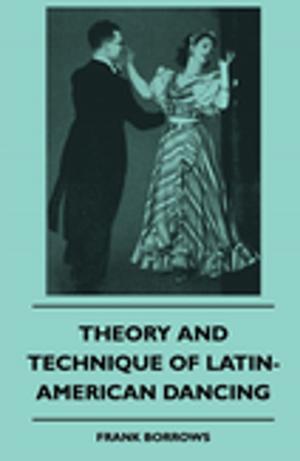| Author: | William Seabrook | ISBN: | 9781447494898 |
| Publisher: | Read Books Ltd. | Publication: | April 16, 2013 |
| Imprint: | Hesperides Press | Language: | English |
| Author: | William Seabrook |
| ISBN: | 9781447494898 |
| Publisher: | Read Books Ltd. |
| Publication: | April 16, 2013 |
| Imprint: | Hesperides Press |
| Language: | English |
A book is occasionally misunderstood or misappraised as something it never had any intention of being. This one is not intended to be a statistical immigration treatise, and still less a controversial polemic. Nor has it any pre tension towards being a technical work on sociology, politics, or economics. It pretends to show in common, closeup, personal, human terms what kind of people Americans of foreign-language origin are today, what they contribute to the American scene, how they live in the land of their adoption, how they are viewed and treated there. William Seabrook writes about a numerically enormous element in the population of the United States - certainly thirty million and maybe forty million people, including babies, grandfathers, and grownups now renamed Jones and Kelly. In a non-statistical, human-interest picture such as this intends to be the actual number of foreign-born immigrant American citizens, already close to fifteen million, is a mere nucleus for the vast, incomputable total who retain traces of their foreign language origin. All the Johns, Jakes, Tonys, Mikes, Joes, Olafs, and Evas are real people, named by their real names, and will perhaps cast more light on the picture than the various celebrities. It is all straight reporting, plus occasional obvious opinions of his own, and if he has reported objectively rather than honestly it has been to shed a little light on whether or not these groups are actually a menace, as some highly vocal patriots believe. When he intrudes a little into the field of political experts and propagandists it is only in relation to whether or not the recently foreign element in Americas population is a menace, or antagonistic, to Americas present basic form of government and social fabric Where he mentions his own sincere belief that the American is as good a basic form of government and social fabric as has yet been tried - or imagined by honest Utopians - he does it neither as a member of any privileged class nor as a professional political commentator, but simply as an average working American, neither rich nor poor, who likes his own country the best, and hopes it will survive as a free democracy. If he has presented any conclusion it is merely a general one that the menace is nothing for anybody to sit up nights worrying about. If his reporting seems consequently on the optimistic side it is because what he saw and heard led him sincerely to believe that the American Melting Pot - despite the fact that it bubbles, emits steam, and occasionally has to be skimmed of scum - is producing a good, sound, healthy conglomerate.This book is highly recommended for inclusion on the bookshelf of anyone with an interest in the history of immigration or society of America.
A book is occasionally misunderstood or misappraised as something it never had any intention of being. This one is not intended to be a statistical immigration treatise, and still less a controversial polemic. Nor has it any pre tension towards being a technical work on sociology, politics, or economics. It pretends to show in common, closeup, personal, human terms what kind of people Americans of foreign-language origin are today, what they contribute to the American scene, how they live in the land of their adoption, how they are viewed and treated there. William Seabrook writes about a numerically enormous element in the population of the United States - certainly thirty million and maybe forty million people, including babies, grandfathers, and grownups now renamed Jones and Kelly. In a non-statistical, human-interest picture such as this intends to be the actual number of foreign-born immigrant American citizens, already close to fifteen million, is a mere nucleus for the vast, incomputable total who retain traces of their foreign language origin. All the Johns, Jakes, Tonys, Mikes, Joes, Olafs, and Evas are real people, named by their real names, and will perhaps cast more light on the picture than the various celebrities. It is all straight reporting, plus occasional obvious opinions of his own, and if he has reported objectively rather than honestly it has been to shed a little light on whether or not these groups are actually a menace, as some highly vocal patriots believe. When he intrudes a little into the field of political experts and propagandists it is only in relation to whether or not the recently foreign element in Americas population is a menace, or antagonistic, to Americas present basic form of government and social fabric Where he mentions his own sincere belief that the American is as good a basic form of government and social fabric as has yet been tried - or imagined by honest Utopians - he does it neither as a member of any privileged class nor as a professional political commentator, but simply as an average working American, neither rich nor poor, who likes his own country the best, and hopes it will survive as a free democracy. If he has presented any conclusion it is merely a general one that the menace is nothing for anybody to sit up nights worrying about. If his reporting seems consequently on the optimistic side it is because what he saw and heard led him sincerely to believe that the American Melting Pot - despite the fact that it bubbles, emits steam, and occasionally has to be skimmed of scum - is producing a good, sound, healthy conglomerate.This book is highly recommended for inclusion on the bookshelf of anyone with an interest in the history of immigration or society of America.















